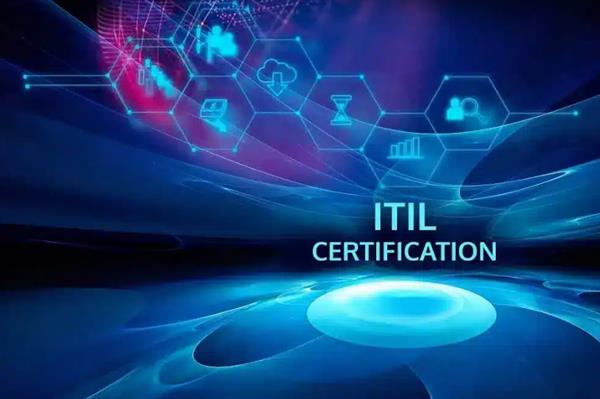3. ITIL® 4 Strategist: Direct, Plan, and Improve The ITIL® 4 Strategist certification in Direct, Plan, and Improve offers guidance on aligning strategies with a comprehensive governance framework, fostering continuous improvement. Forming part of the ITIL 4 Strategic Leader (SL) stream while also pivotal for ITIL Managing Professionals, this module underscores practical skills crucial for cultivating a learning-focused, strategically adept IT organization. It entails learning agile and lean methodologies and navigating the impact of change initiatives on operations. Geared towards IT leaders and managers shaping IT direction and strategy, this module equips professionals with the tools to foster operational excellence.
4. ITIL® 4 Specialist: Drive Stakeholder Value Course The ITIL® 4 Specialist certification in Drive Stakeholder Value concentrates on enhancing engagement and interaction between service providers and stakeholders, including customers, users, suppliers, and partners. With a focus on converting demand into value through IT-enabled services, this certification equips practitioners with techniques to build relationships, shape customer demand, and ensure high satisfaction levels. Designed to manage and integrate stakeholder expectations and needs within the service value system, the course facilitates value co-creation through pragmatic and strategic approaches.
5. ITIL® 4 Specialist: High Velocity IT Course The ITIL® 4 Specialist certification in High Velocity IT delves into the operational dynamics of digital organizations functioning in high-velocity environments. Exploring practices such as Agile, Scrum, Lean, and technologies like Cloud, Automation, and Automatic Testing, this module targets IT managers and practitioners involved in digital services or transformation projects. With an emphasis on rapidly delivering products and services for maximum value, this training elucidates the significance of ITIL practices in navigating high-velocity environments, fostering efficiency, and ensuring service excellence.
Eligibility Criteria for ITIL Certification
While no specific prerequisites exist for individuals to undertake the ITIL foundation-level examination, prior experience in the IT sector can be advantageous. As candidates progress through the certification levels, they can accumulate ITIL credits, unlocking access to subsequent certification courses.
ITIL Certification Process Managed by PeopleCert, the ITIL 4 Foundation Certification process comprises several stages to ensure candidates are adequately prepared to implement ITIL practices effectively:
1. Training: Candidates undergo formal training through accredited organizations, covering key concepts, practices, and terminology of the ITIL 4 framework.
2. Exam Preparation: Alongside training, candidates receive resources like study guides and practice exams to enhance their understanding and readiness for the exam.
3. Exam Registration: Candidates register for the ITIL 4 Foundation exam through PeopleCert, which is available online, enabling flexible scheduling and remote completion.
4. Taking the Exam: The closed-book exam consists of 40 multiple-choice questions, with a passing score of at least 65%. The exam typically lasts 60 minutes.
5. Certification: Upon passing the exam, candidates receive an ITIL Foundation certificate from PeopleCert, globally recognized as validation of their ITIL framework understanding.
Continuing Professional Development: Certified professionals are encouraged to engage in ongoing learning and development to stay abreast of industry trends and maintain their skills.
Benefits of ITIL Certification
ITIL certification stands as the hallmark for best practices in the IT industry, empowering projects and organizations to deliver advanced value within this complex field. Individuals holding ITIL certification are in high demand, and pursuing various certification levels brings diverse benefits. Key advantages of ITIL certification include:
1. Globally Recognized Qualification: ITIL certification establishes an international standard for service management skills and qualifications, with many top service providers considering it essential for experts in the field. This recognition enhances career prospects on a global scale.
2. Career Advancement: Completing an ITIL course positions individuals as global experts, leading to better pay and increased career advancement opportunities across a broad spectrum of roles and industries.
3. Cultivation of Proactive Culture: Through ITIL training, individuals gain the confidence to implement strategies that enhance customer satisfaction, focusing on user experience and expectations. They become proficient in utilizing ITIL tools and frameworks to foster a proactive culture, ultimately improving service delivery quality.
Training Options for ITIL Certification
Training for ITIL certification is available in various formats to cater to different learning preferences and schedules. Common training options include:
- Self-paced Online Learning
- Virtual Classroom Training
- Onsite Training
- Blended Learning
- Bootcamps
ITIL Certification Cost
The cost of ITIL certification varies depending on the level and format of training. For example, Simplilearn offers different ITIL certifications in the USA at varying prices, including the ITIL 4 Foundation Certification Training Course and specialized modules like Create, Deliver and Support, Direct, Plan, and Improve, Drive Stakeholder Value, and High Velocity IT.
Emerging Trends in ITIL Certification In 2024, emerging trends in ITIL certification include:
- Integration of AI into ITIL Practices
- Focus on Enhanced Engagement and Customer Experience
- Increased Employee Satisfaction
- Combination of ITIL and DevOps methodologies
Conclusion
Pursuing professional ITIL certification equips individuals with new skills, strengthens resumes, and opens doors to lucrative career opportunities in the IT industry. To kickstart a career in IT, consider enrolling in the ITIL 4 Foundation Certification course offered by Simplilearn.
News Reference
